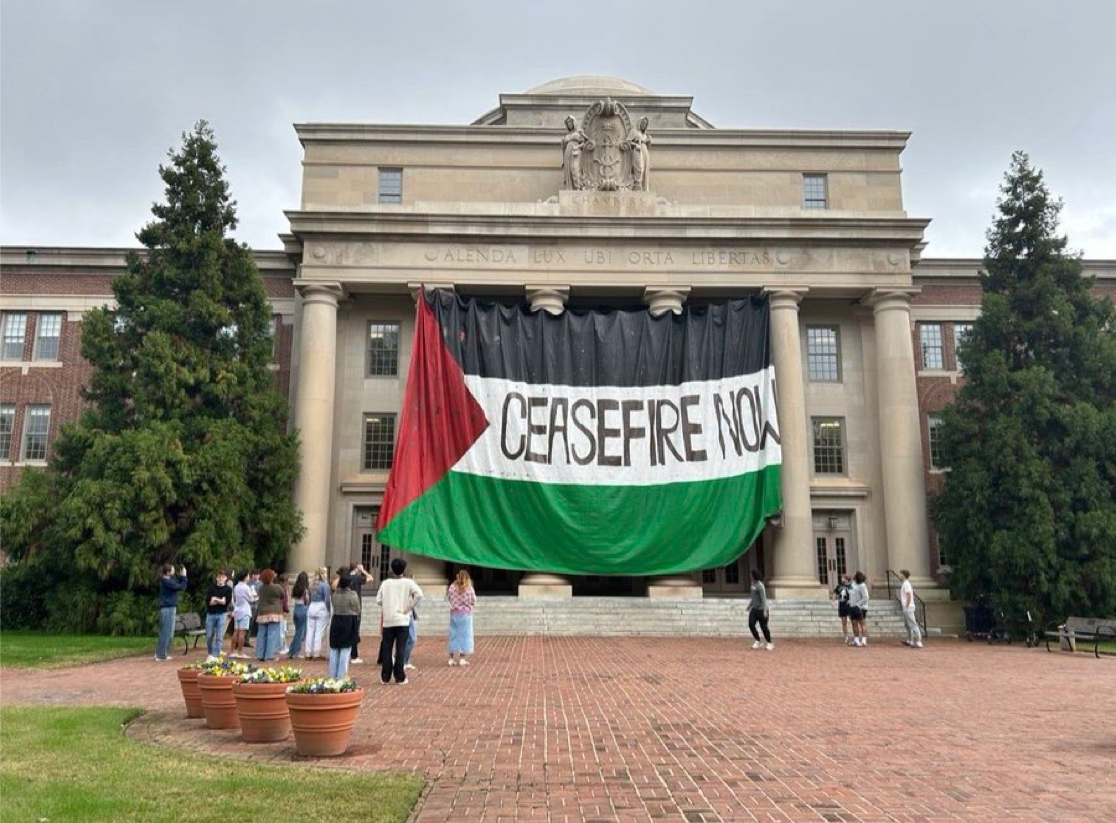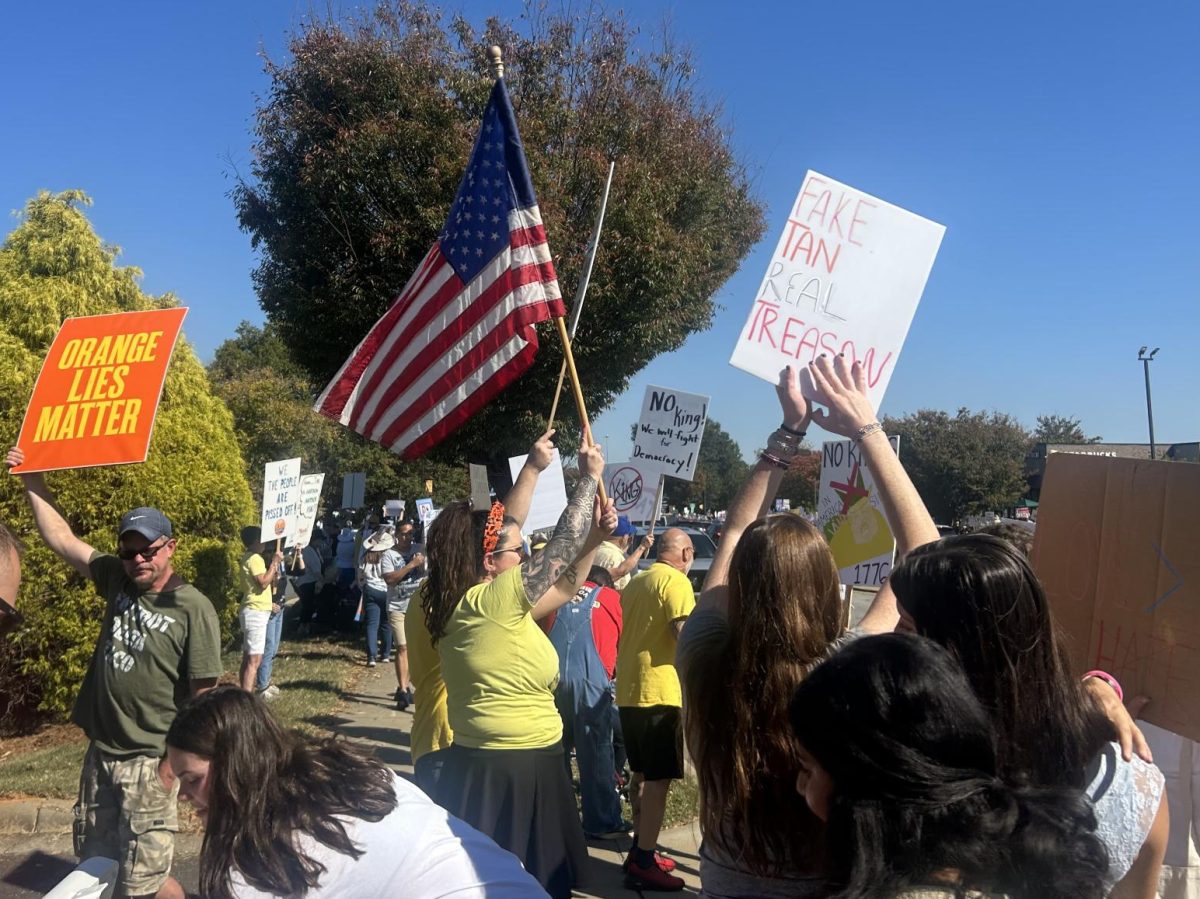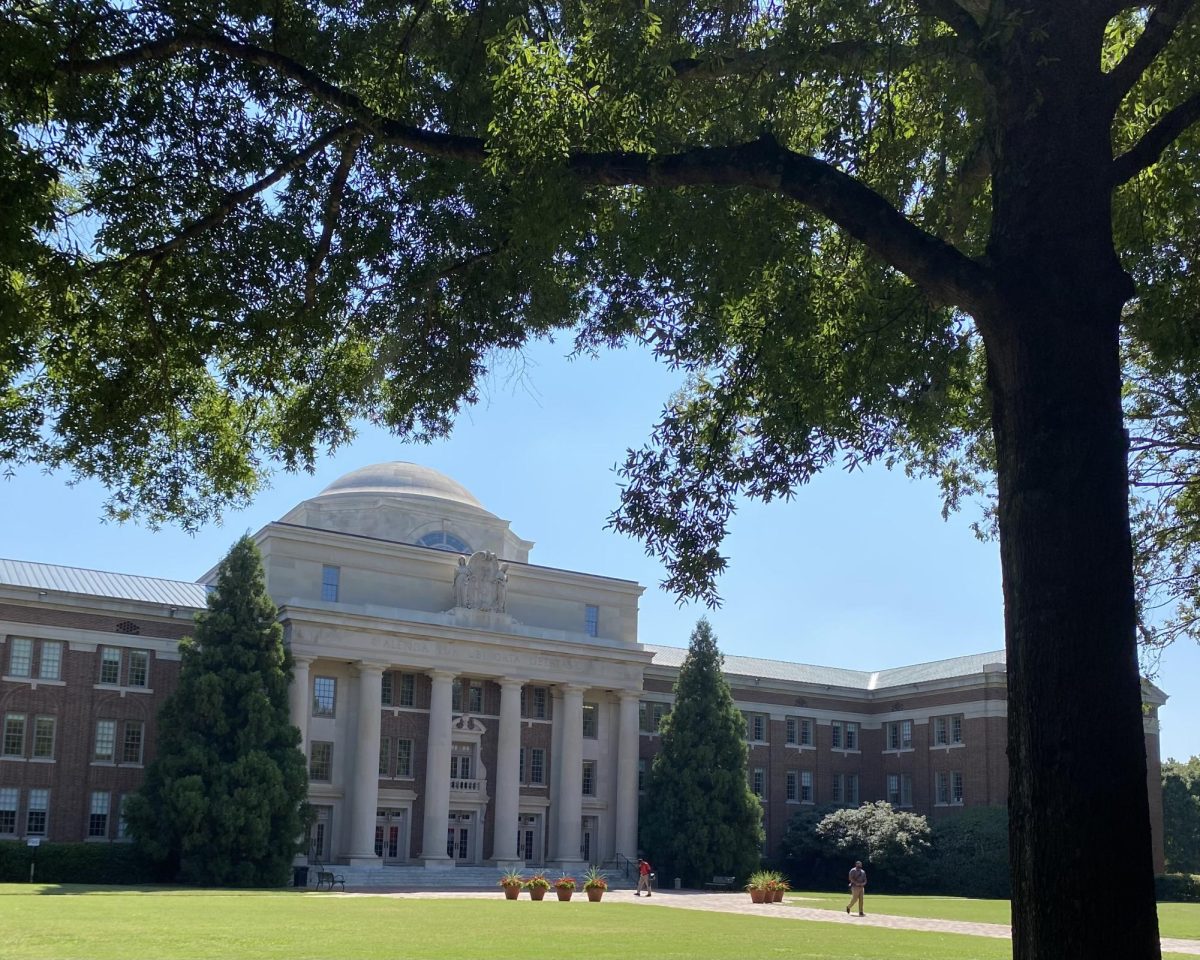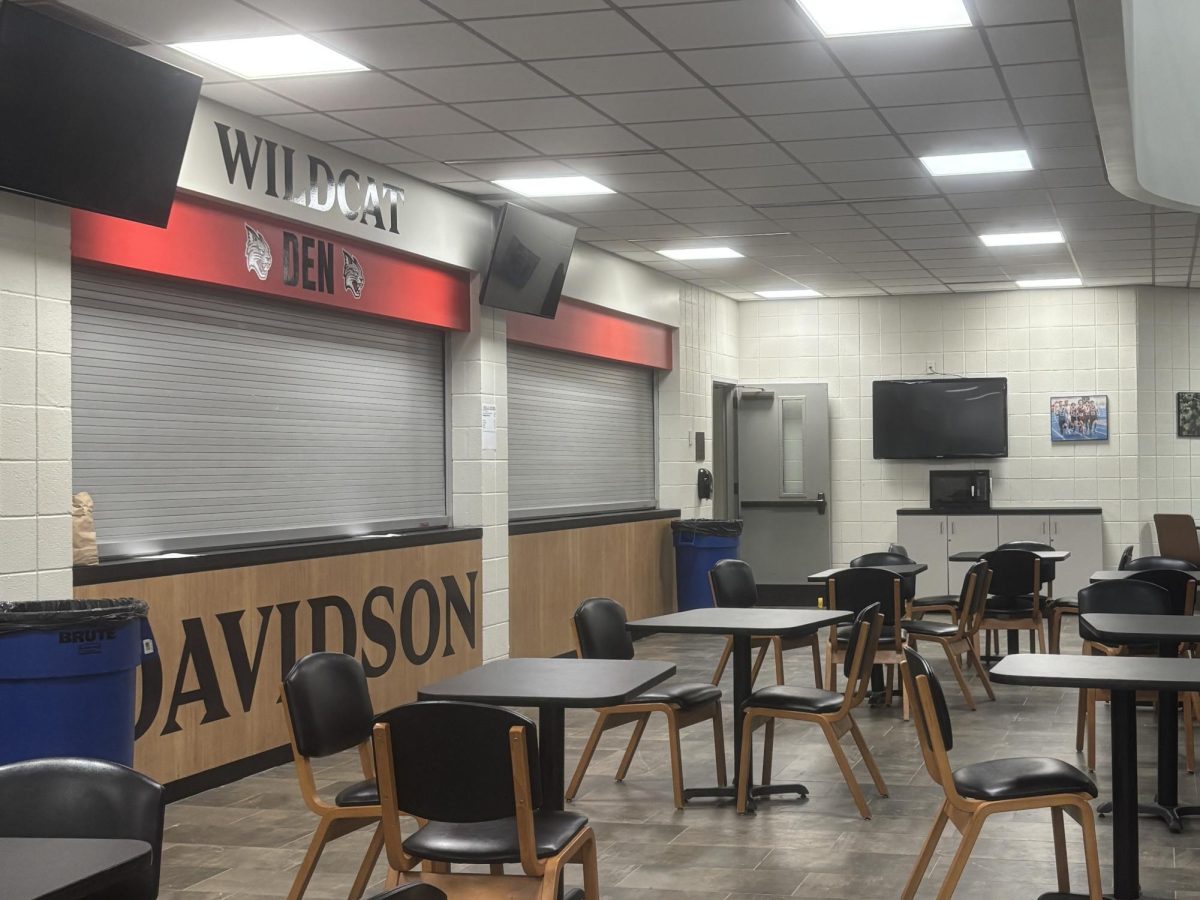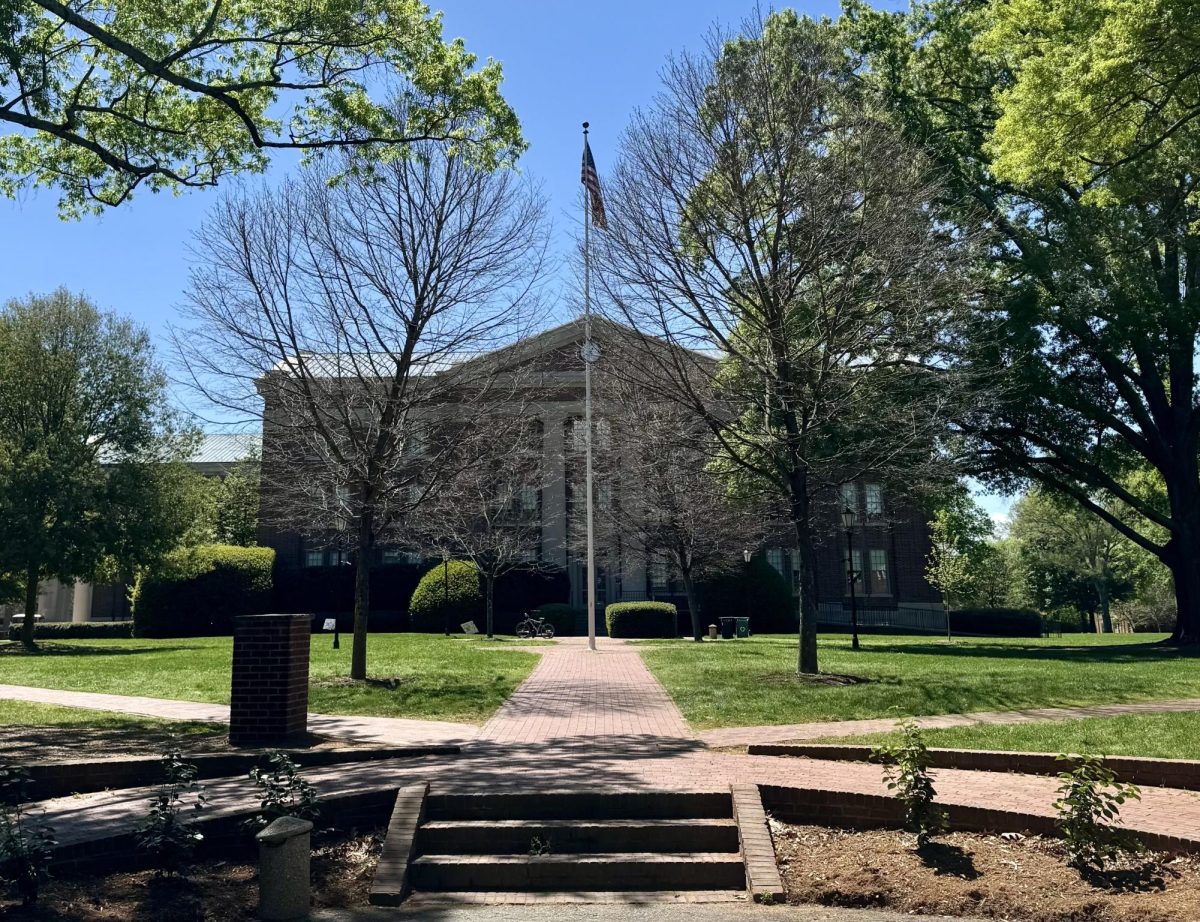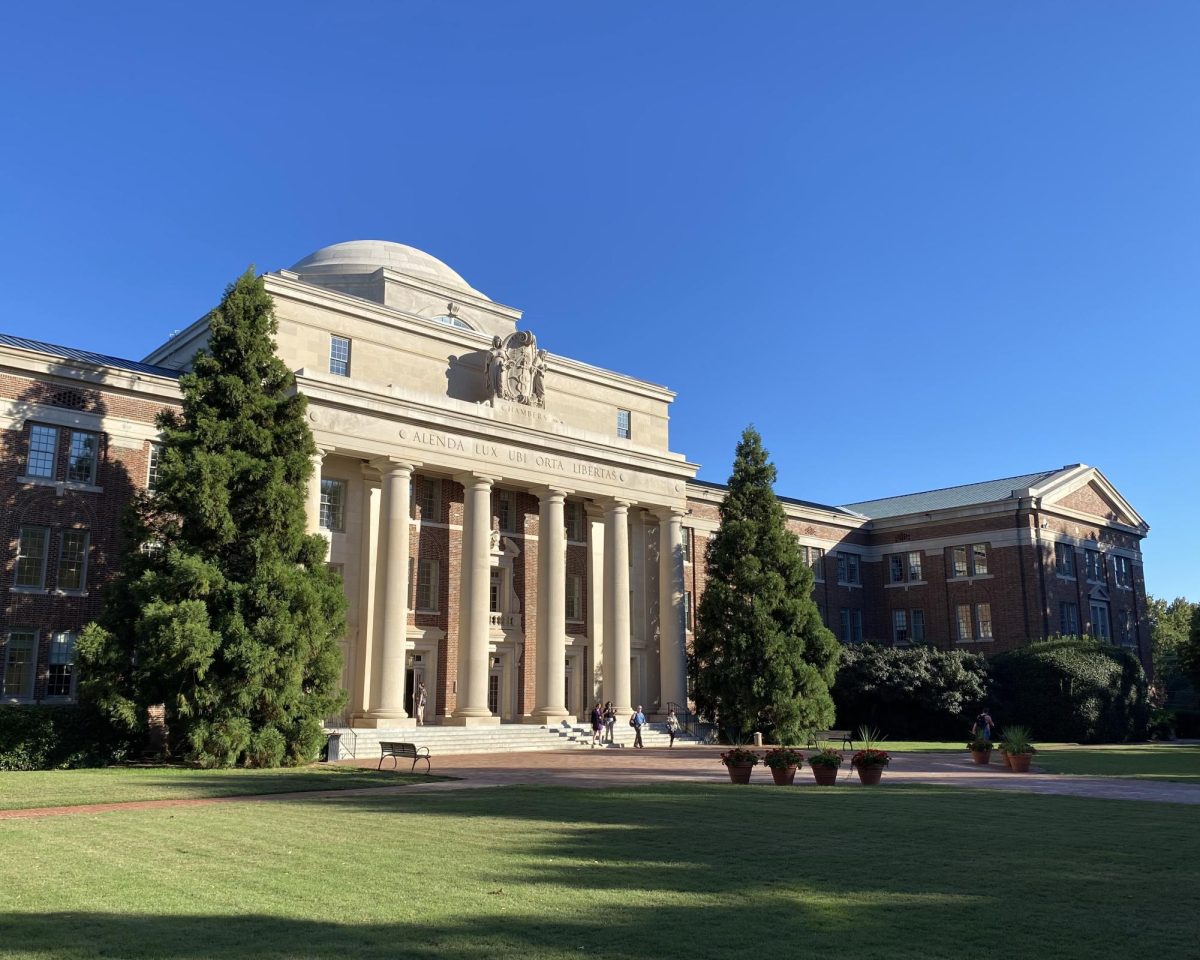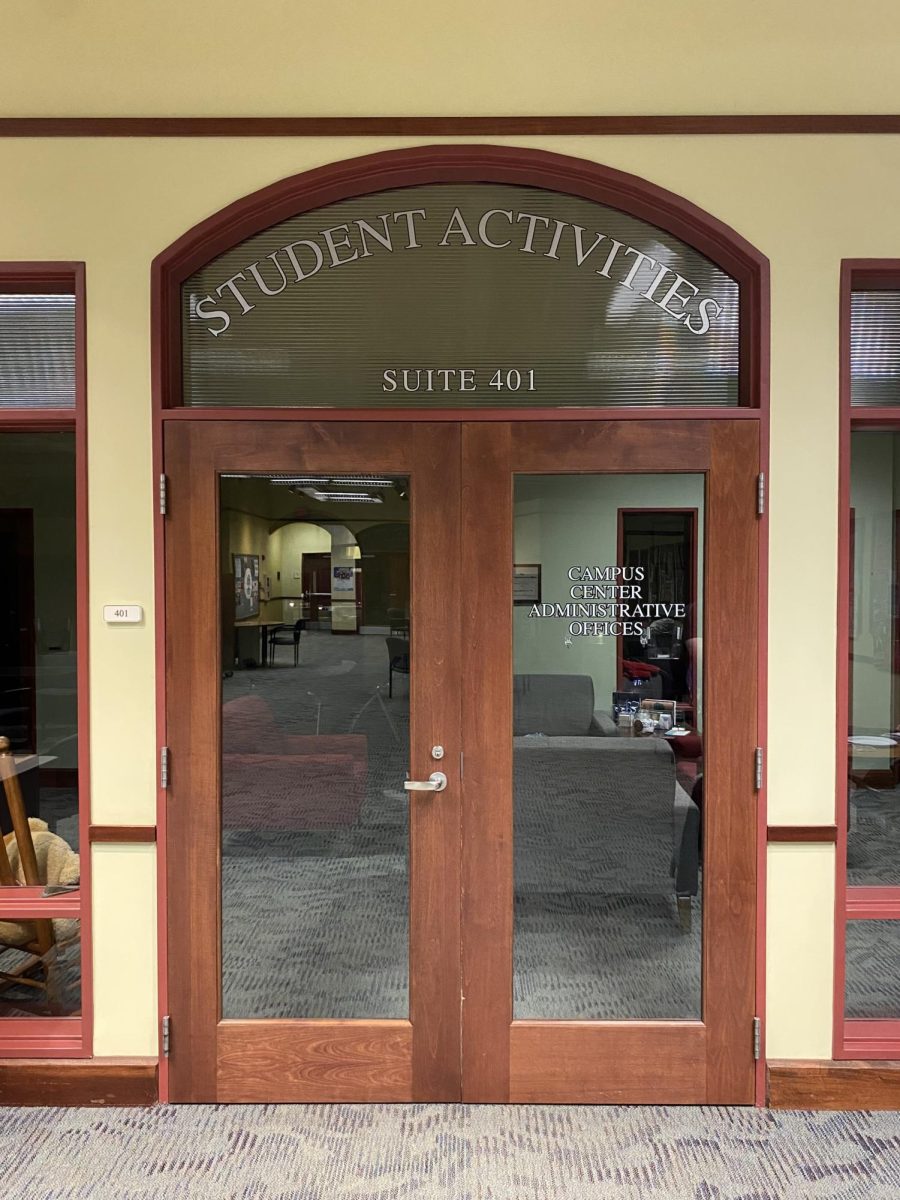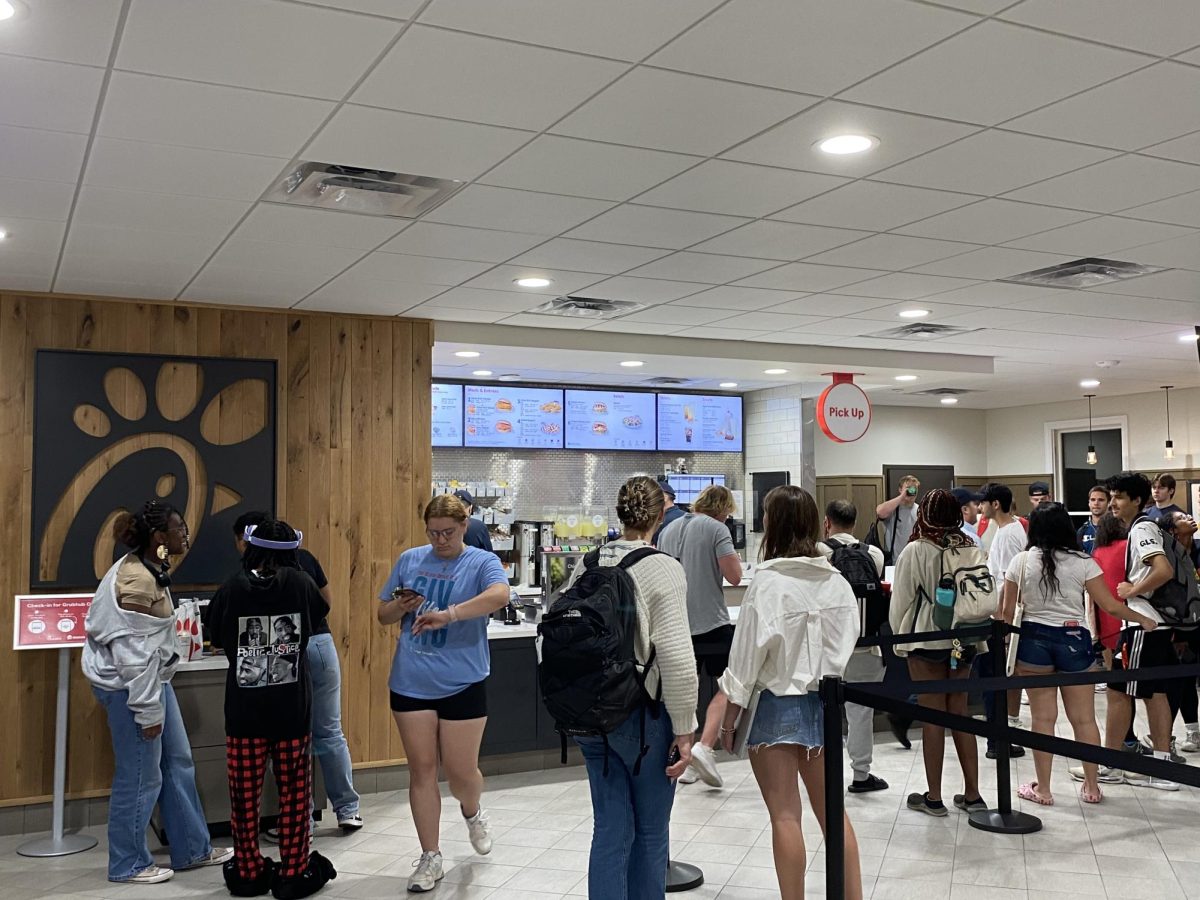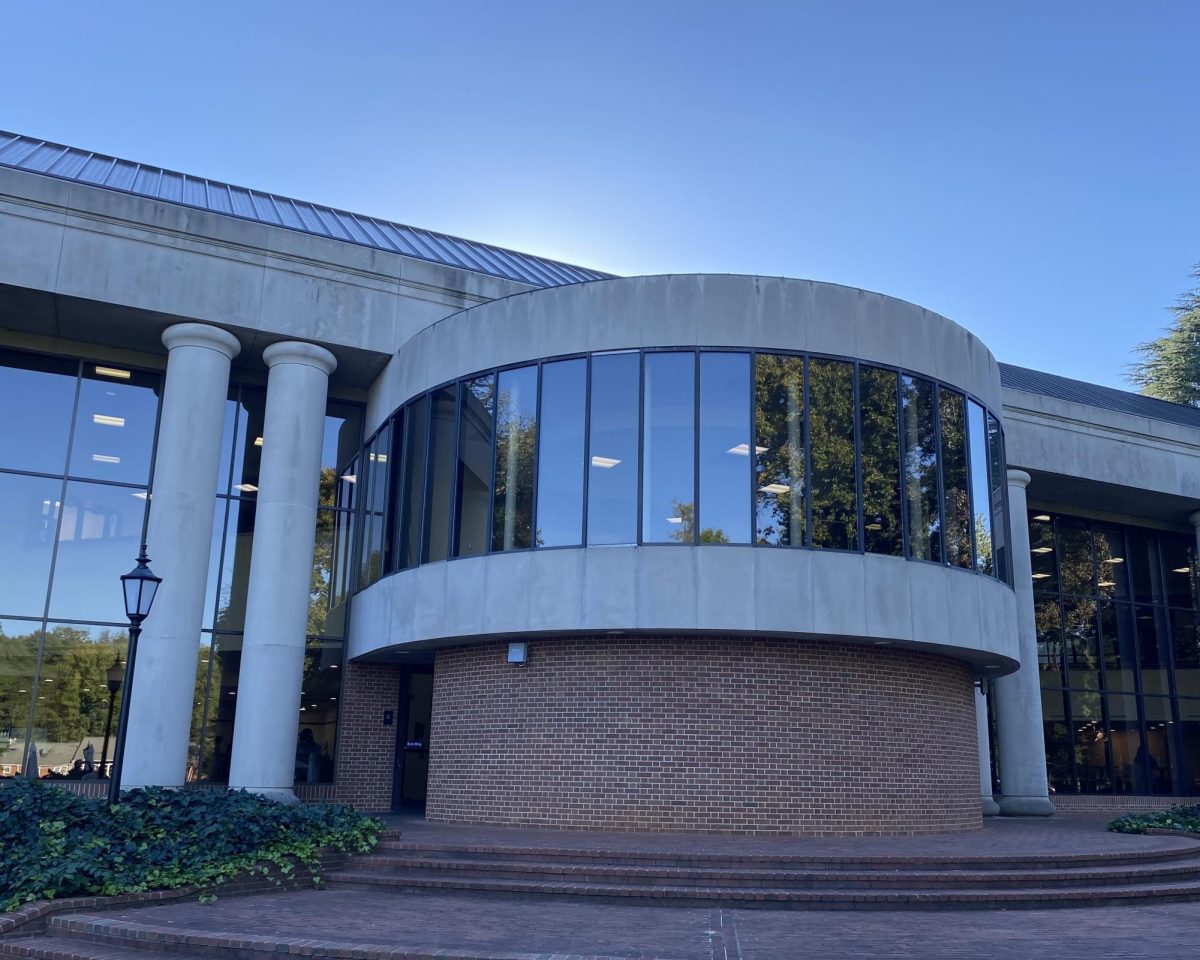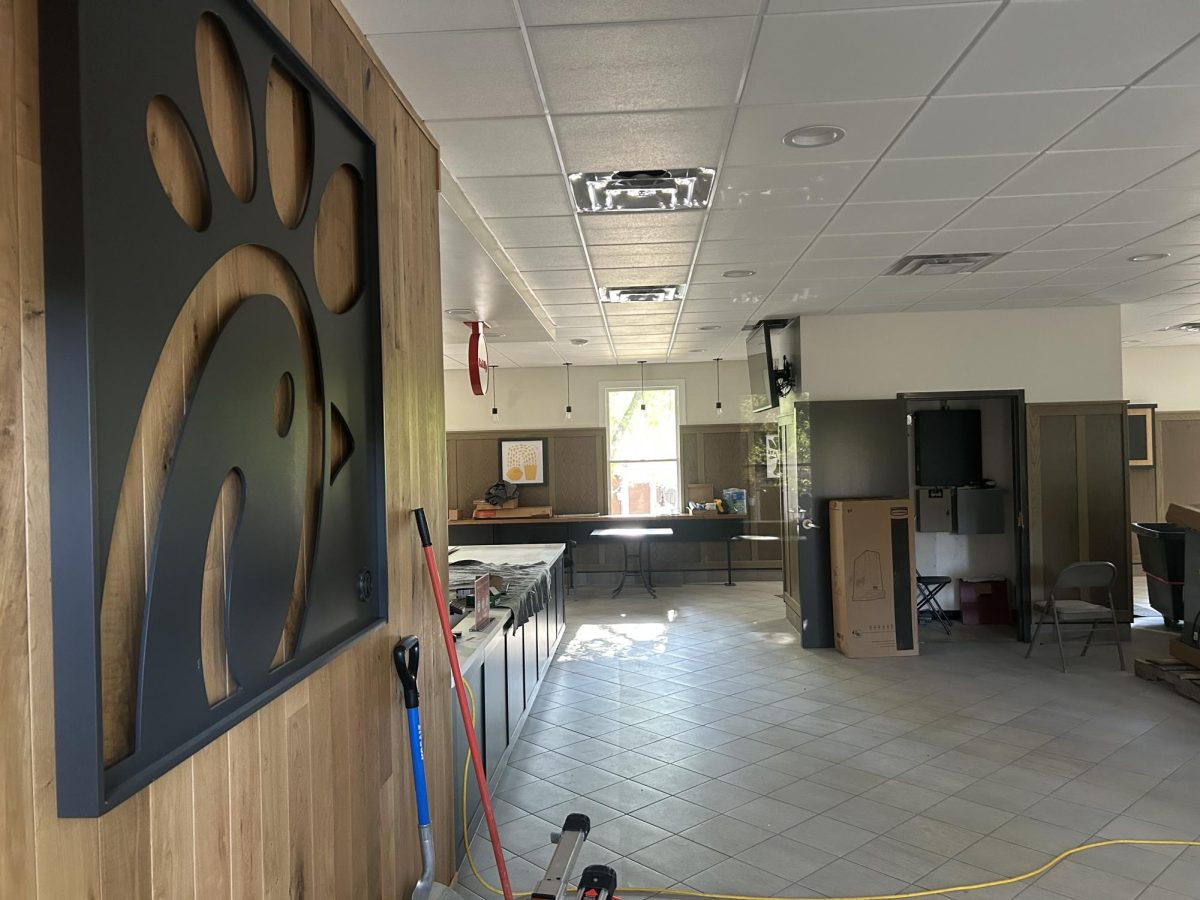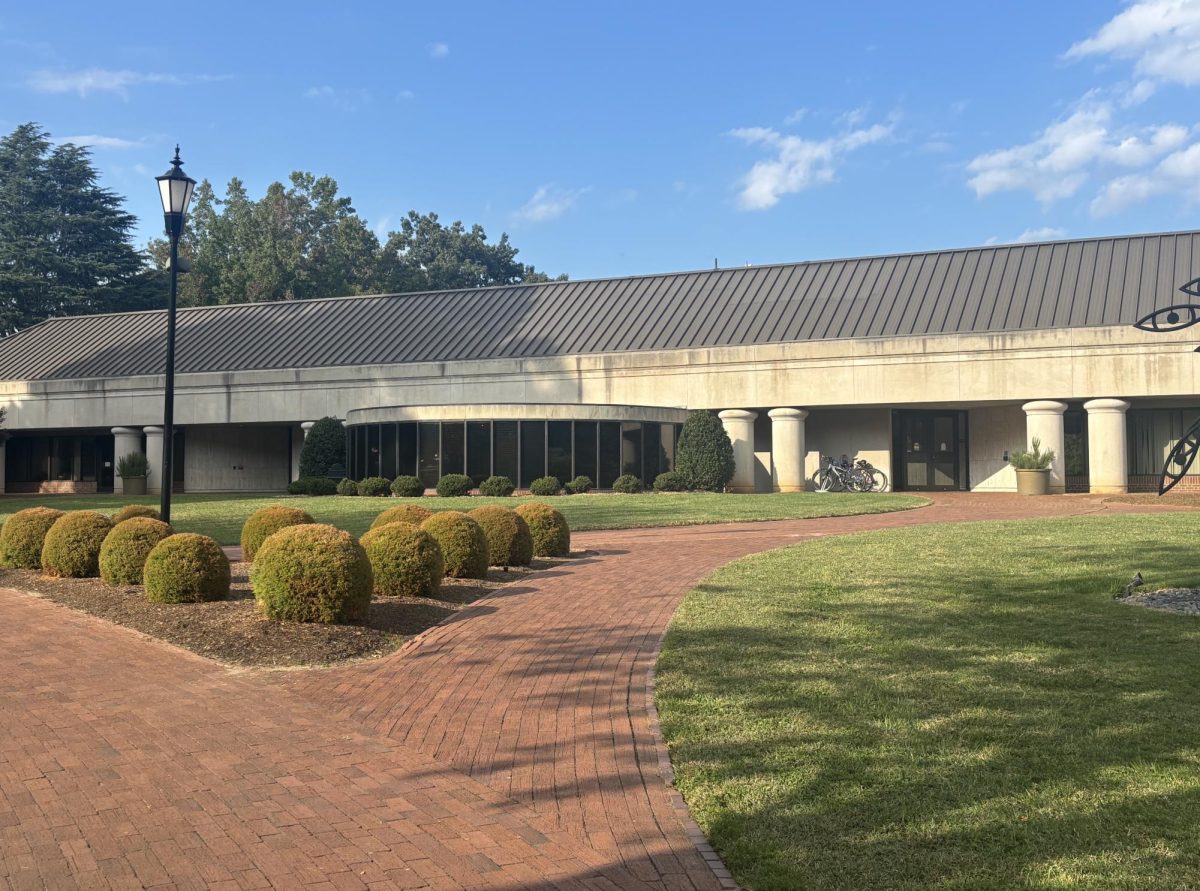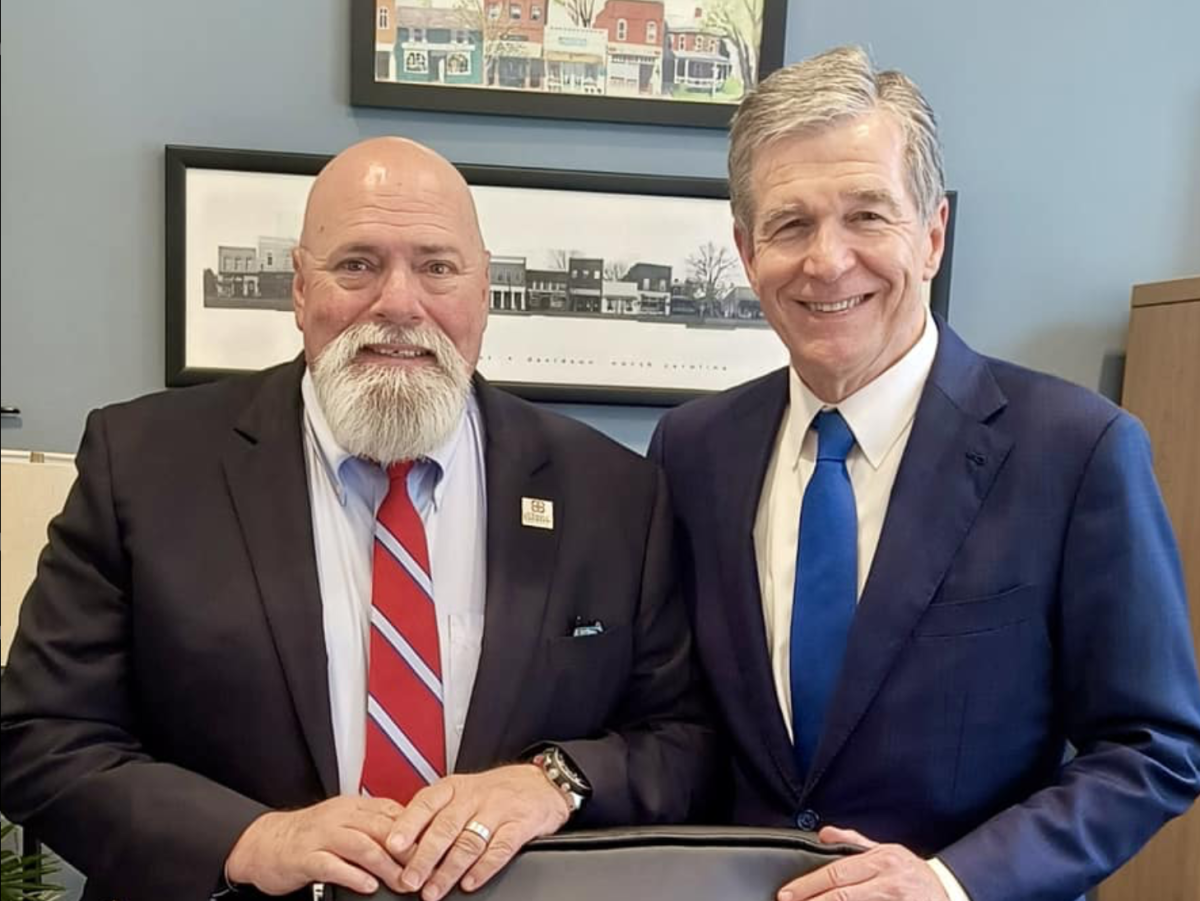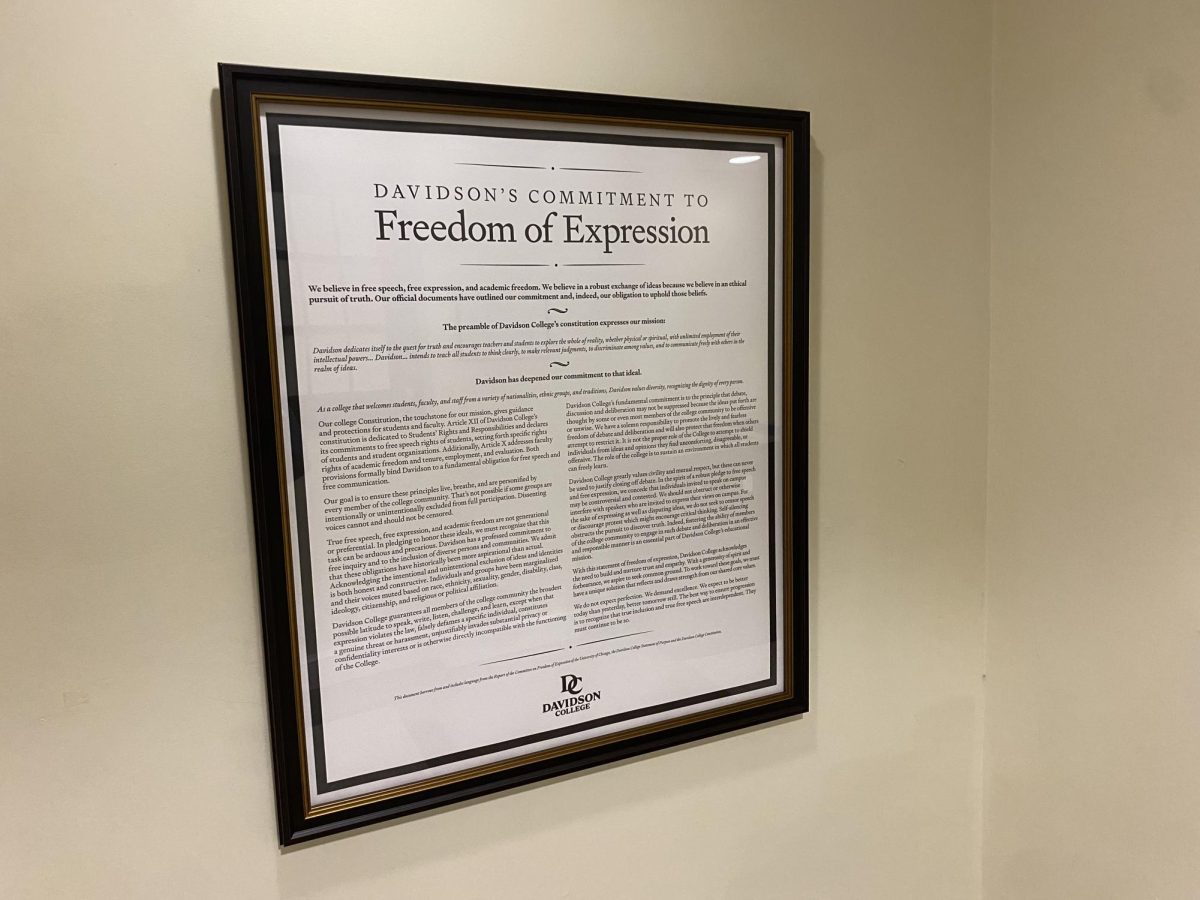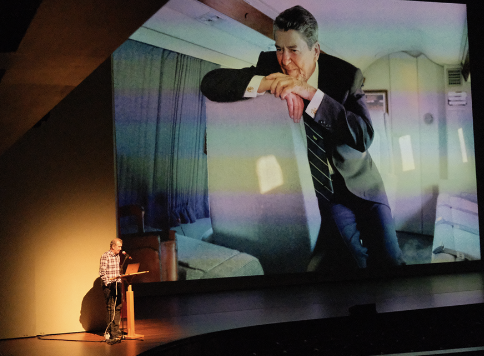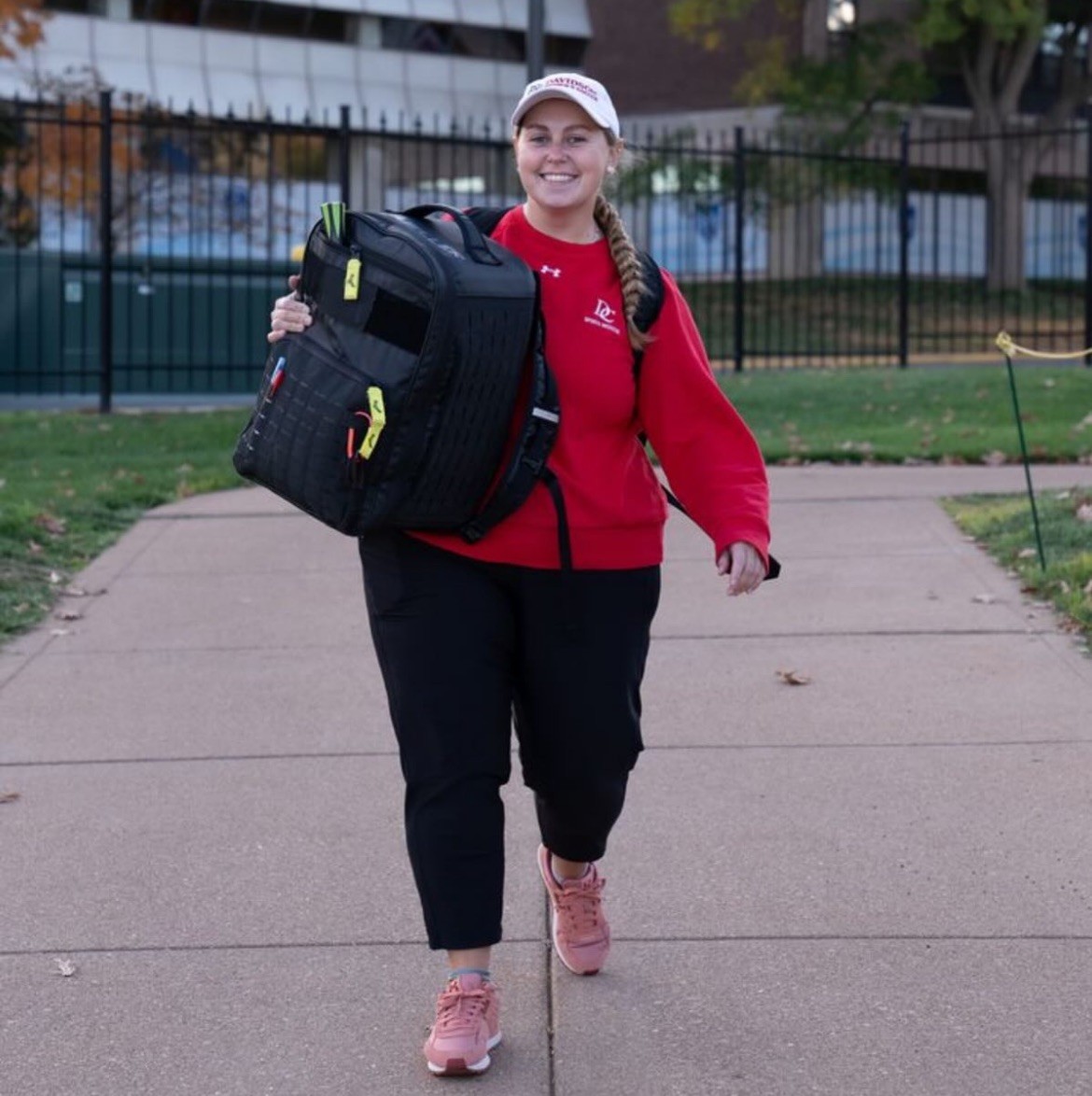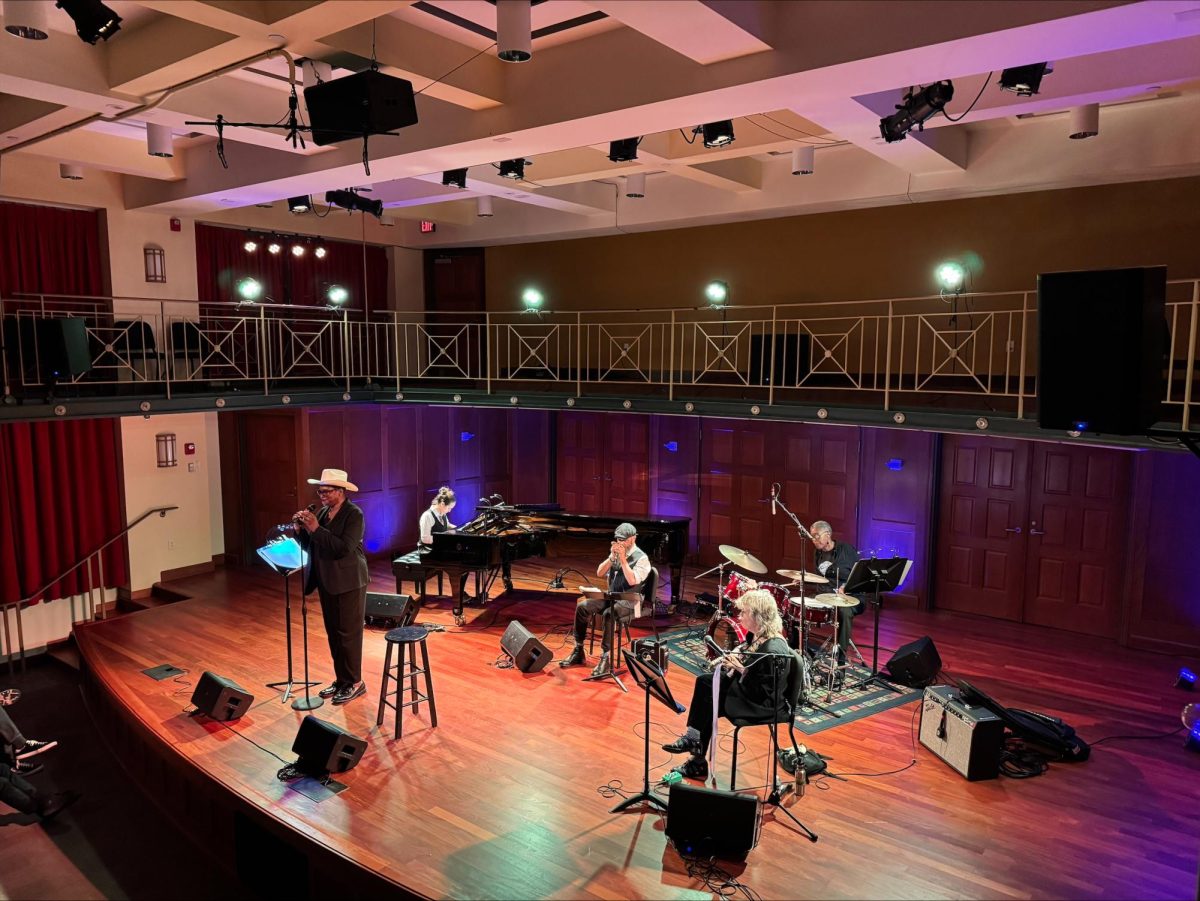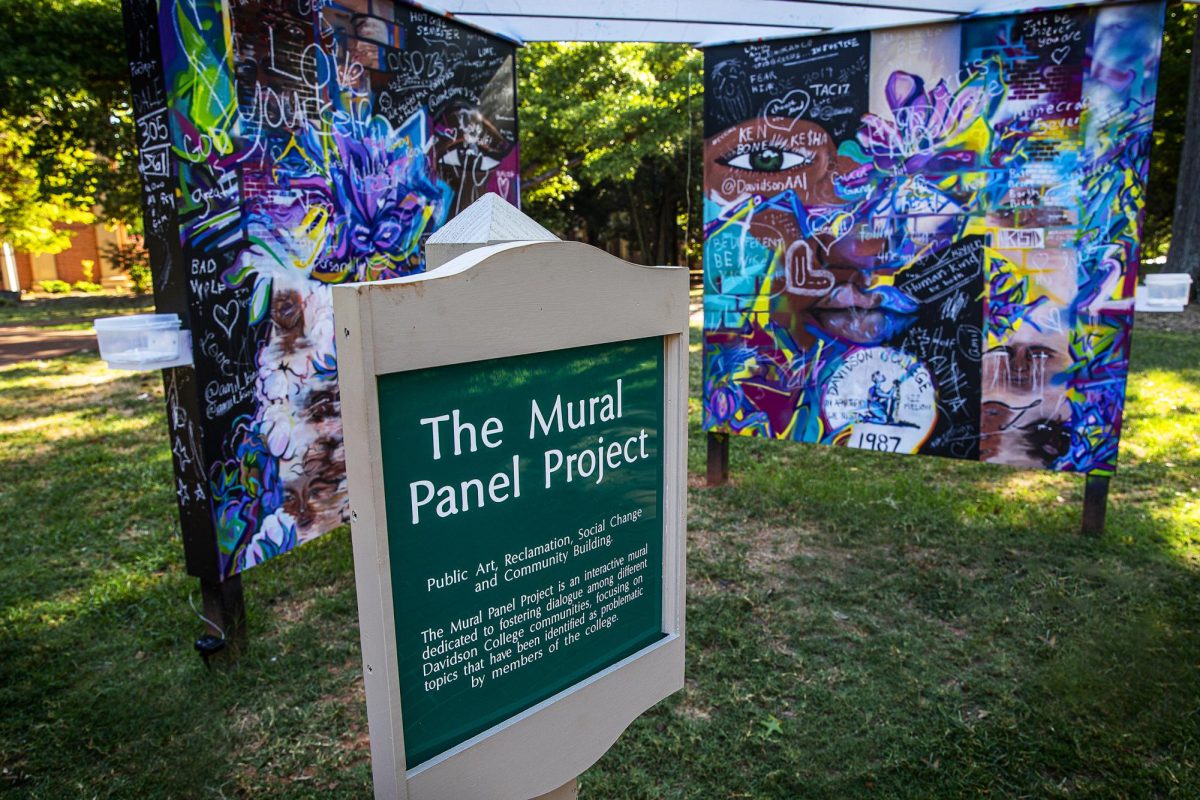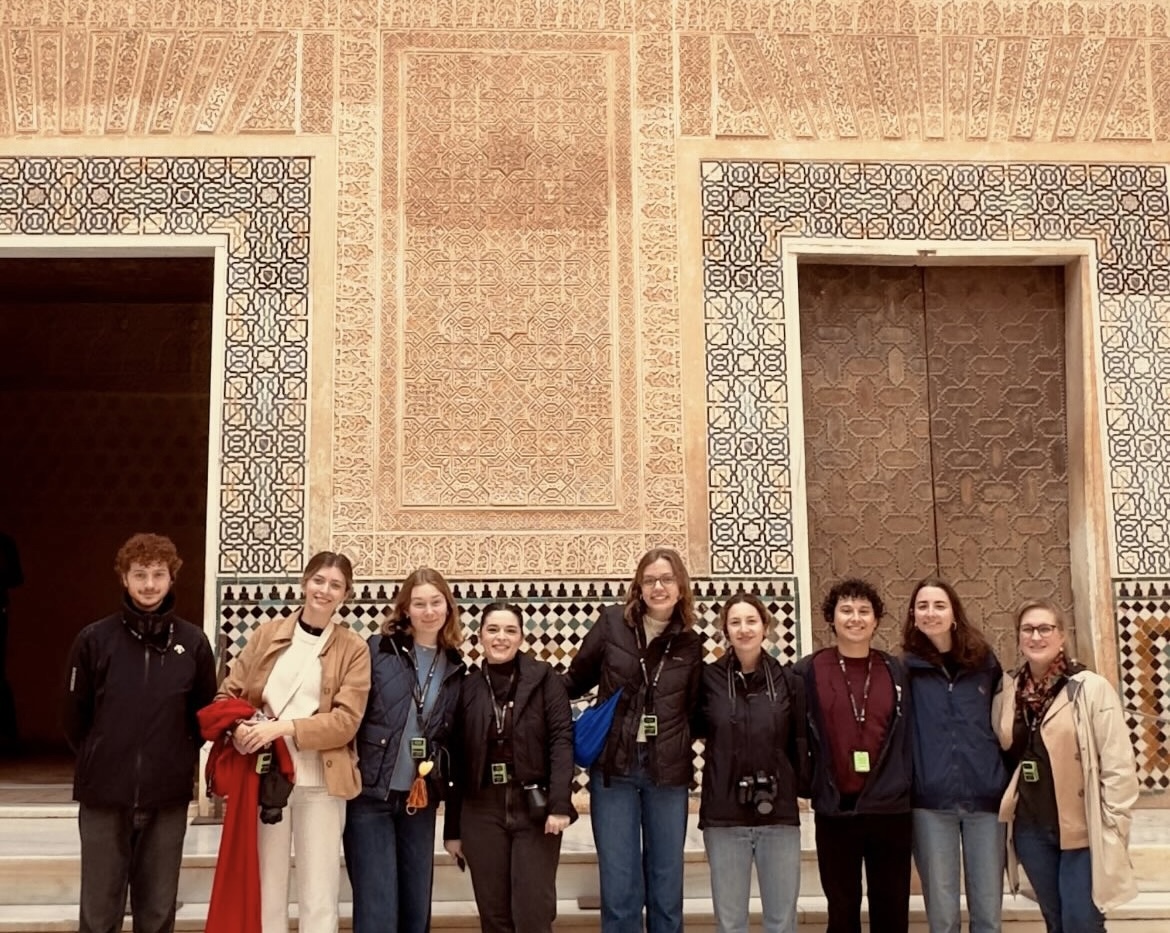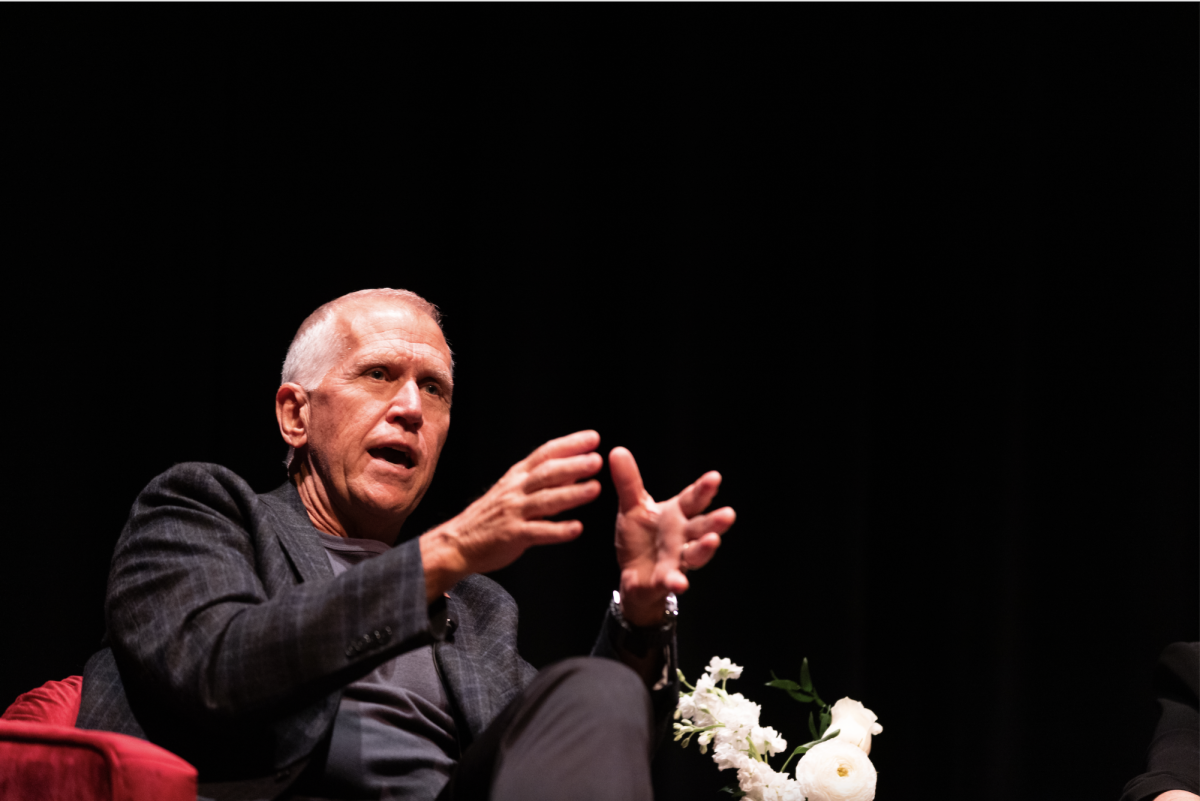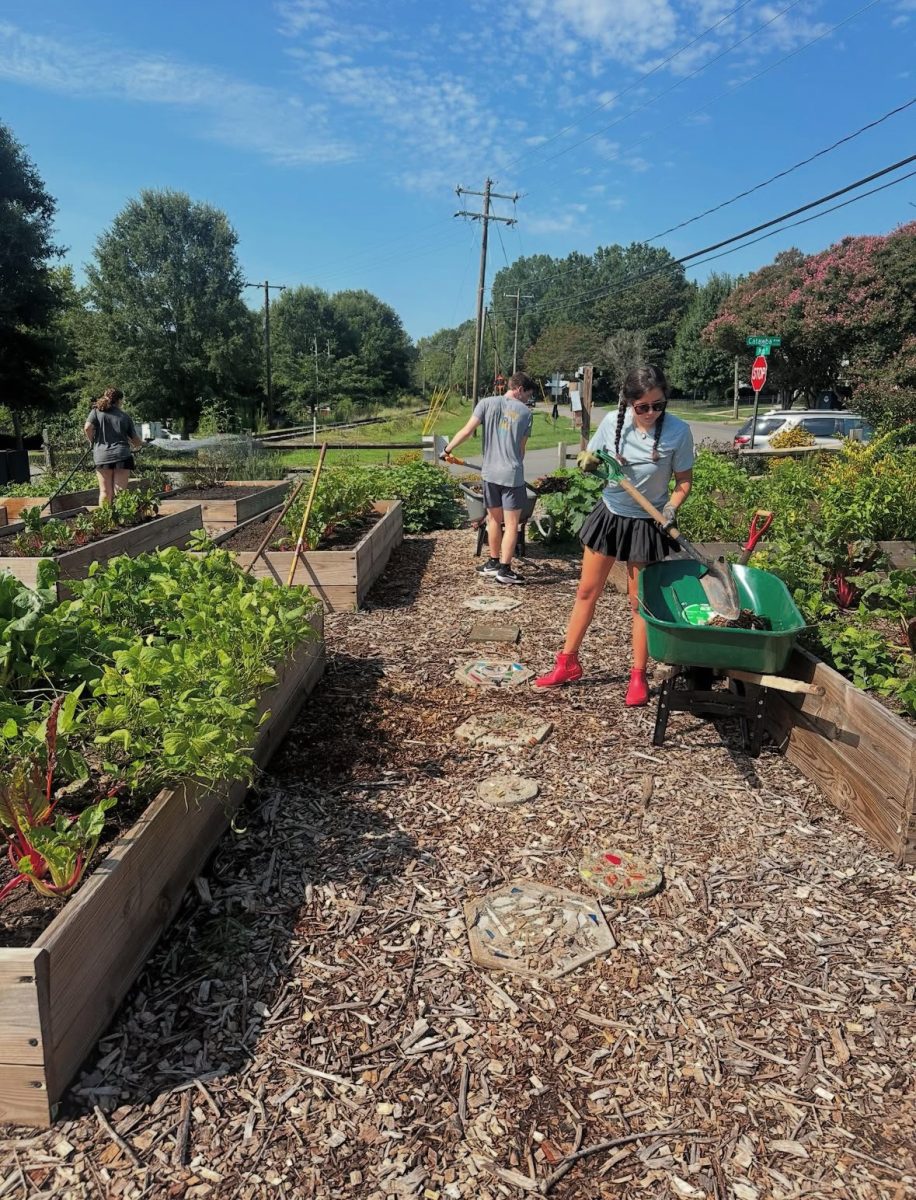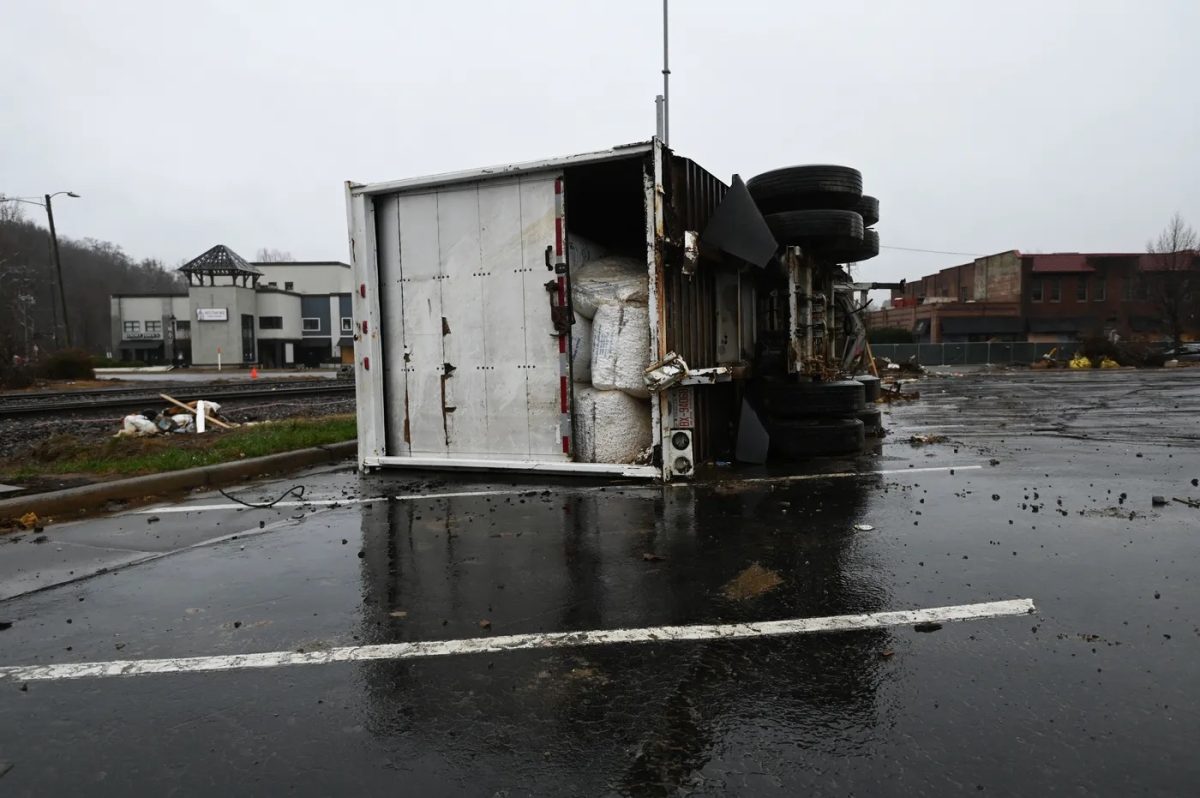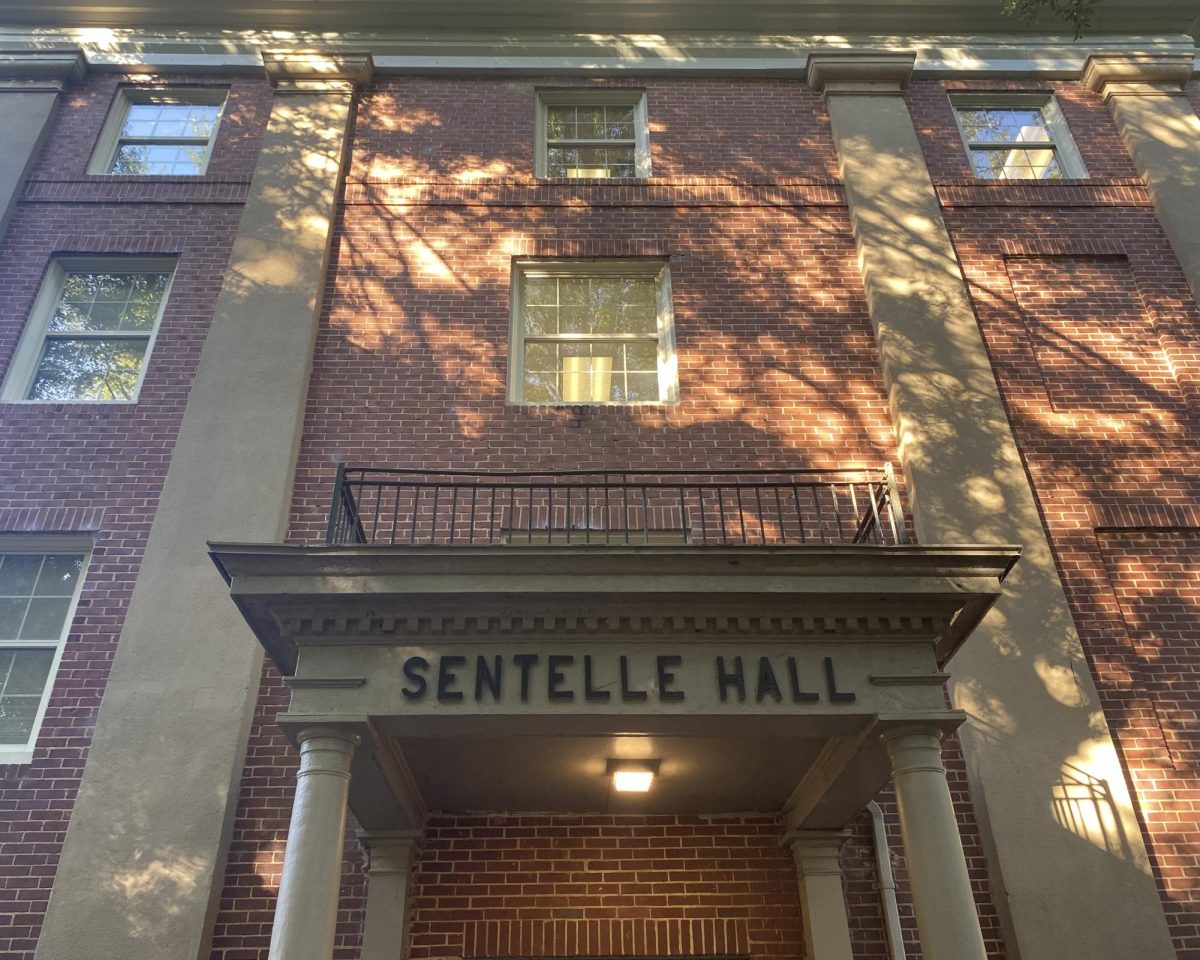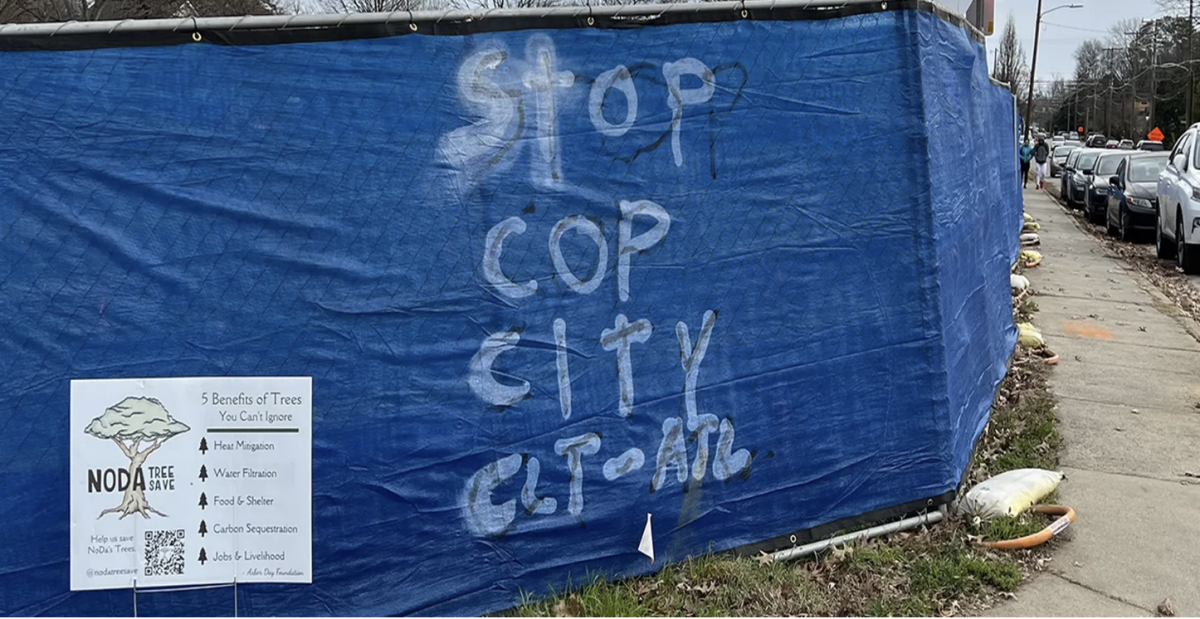The Charlotte area plans to take part in a national trend by building a new police training facility. But another trend is following along right behind—resistance to it.
About 30 minutes south of Davidson, 23 acres of land and $79 million will be transformed into a facility with a firing range, a simulated city and more. The planned construction of the new institution has drawn myriad responses, with many worried it will accelerate rising police militarization and surveillance.
The facility, located in the town of Matthews, is said to be a facility for first responders, including police and firefighters. It is part of the Central Piedmont Community College’s (CPCC) efforts to expand their law enforcement, fire and rescue, EMS, forensics and Public Safety Administration programs.
“Outdoor training spaces will include a scenario-training village and emergency driving range,” a July 2024 announcement from CPCC states. “Indoor facilities will provide a firing range and a fire and rescue area with specialized equipment for comprehensive training. The center will be constructed in phases, with the first phase opening in 2027, and phase two opening in 2028.”
According to open records from CPCC, which outlines the project’s budget, the endeavor will cost approximately $70 million. “The total cost for this project is actually $70 million. $40 million of 2017 PayGo [note: according to the Tax Policy Briefing Book, pay-as-you-go is a budget rule requiring that tax cuts and mandatory spending increases must be offset (i.e., “paid for”) by tax increases or cuts in mandatory spending] funds will be transferred to this project to supplement the required funding. The remaining $30 million balance is included in this […] request,” reads their project budgeting document.
A similar project is ongoing in Concord, North Carolina. In June of 2024, WCNC Charlotte reported nearby Cabarrus County’s approval of a $450 million budget, with $2 million allotted to the public safety facility’s construction. Their 5-year plan dedicates a total of $35 million to the facility.
Following the 2020 murder of George Floyd and the emergence of the “defund the police” movement, many cities have decided to increase funding for police forces. Since 2019, over 80 multi-million dollar police training facilities have been planned and constructed across the country. They have come to be colloquially known as “cop cities.” They are quietly rolling out all over the country, including Chicago, Baltimore and Atlanta.
However, according to Associate Professor of Gender and Sexuality Studies at Davidson College Dr. Katie Horowitz, the national trend toward expanding—and militarizing—police forces has been present since 2001.
“Ever since 9/11, there has been a sharp rise in the militarization of policing. During the War on Terror, surplus military equipment was transferred to domestic police forces such that local police departments have been armed with military-grade weapons, riot gear and even tanks. The reasoning was that we needed to equip local law enforcement to fight terrorists. Instead, this equipment has most often been used against civilian protesters for racial, gender, economic and environmental justice,” Horowitz said.
The training facility was officially announced in June of 2024 on the CPCC website, where they announced Rick Hendrick and Hendrick Automotive’s gift of 23 acres to the school to expand its Levine Campus.
CPCC President Dr. Kandi Deitimeyer is quoted saying “This generous gift will allow the College to realize its vision of building a first responder training facility in Southeast Mecklenburg County, where none currently exists. The College appreciates its long-running partnership with the Hendrick Family and Hendrick Automotive Group.”
However, the plan to build the Charlotte facility has been underway for longer. The land was donated back in August of 2023 and talks about what to do with it have been going on ever since.
The decision to use Hendrick Automotive’s land for the training facility required rezoning the 23-acre lot adjacent to Campus Ridge Road in the Town of Matthews. During a community meeting attended by members of the public who live within 300 feet of the property, the council filed a motion to change the land’s construction status from “Single-Family Residential R-9” to a “General Industrial Conditional I-2 (CD).”
At this meeting, a question was posed by a town member about environmental concerns. The change from a residential to a general industrial zone changes the environmental regulations. Some preliminary environmental site assessments were done, which did not recognize any pressing environmental concerns or limits.
Many people disagree with this assessment. Jason Newton, the co-creator of a community movement in Charlotte to preserve the city’s tree canopy, NoDa Tree Save, shared with Axios Charlotte that, in regard to the Stop Cop City movement, many environmentalists hold similar fears for local minority populations. “They’re the ones that suffer most from this type of environmental destruction or cutting down trees in cities, and they’re also the communities that suffer the most from violence from the police,” Newton said.
Additionally, the Stop Cop City Instagram page (@cltstopcopcity) posted infographics that read “Crops not Cops, Stop Cop City Clt” and “Plants not Police.”
Instagram is one of the main ways people found out about the resistance movement. Nolan Dahm, an activist who has been working with the Stop Cop City movement, cited Instagram as their introduction to the organization. “I saw a post about it on Instagram for that same account, and I went to the initial town hall that they held just to hear more about it,” Nolan said.
The account’s first post on Oct. 26, 2024 detailed how the Mecklenburg County Board of Commissioners approved a $74,922,156 budget for the facility that they deemed “Cop City.” Since then, they have posted educational photo slides and videos that outline and highlight their pushback against Charlotte’s Cop City.
The Stop Cop City Instagram page has been a large actor in the movement against the facility’s construction. They have been responsible for collecting and disseminating information about the project, organizing the resistance efforts against it and getting people involved with stopping the project.
On the flip side, some believe the facility could be a force for good. Dr. M. Lyn Exum, a criminologist whose research is focused on theories of criminal behavior and professor at University of North Carolina at Charlotte (UNCC), thinks that if done correctly, the facility could be a helpful community resource.
“This gives officers an opportunity to practice and refine their de-escalation skills, and helps them discern when a situation needs to escalate to a higher level of response. If the new facility provides these types of opportunities (and it is my understanding that it does), then this will help the police be even more prepared to make complex use-of-force decisions quickly and safely,” Exum said in an email.
Exum also acknowledges the importance of community engagement in the project.
“While having this new opportunity to engage in police-community relationship building will be a good thing for the Charlotte community, its impact on the community will depend on how well the citizens who hold strong reservations about the police take advantage of these opportunities. The police can do several things to invite these citizens to take part, but in the end, it is the citizen who needs to agree.”
Mecklenburg County Sheriff Garry McFadden was quoted in Queen City News saying that he hopes the facility is “not so much of a cop city, but a community training center both for law enforcement and the community,” and that “[there] should be community involvement, allow the community to train with us, hear some of our training, sit in on some of our training, hold us accountable.”
Sheriff McFadden found himself in a scandal last November after his employee, Deputy Chief of Mecklenburg County Kevin Canty, resigned in November 2024. Kanty resigned after exposing McFadden for his use of racist language and beliefs, as reported by WCCB-TV Charlotte.
Citizen engagement is something the project has struggled with from the start. Despite a new training facility being in conversation since March of 2023, Charlotte residents have not been included in the decision-making process. “[A large question for me is] has there ever been a meeting where they showed on a slide this plan for Cop City and got public feedback on it? I don’t think there has been. I didn’t see any public record of any discussion of this until they put it on their website this June. […] Queen City News seems to be the only newspaper that’s really written anything on it,” Nolan said.
CPCC administration has dismissed the need for community input. In a video posted by the Stop Cop City Instagram page on Feb. 2, 2024, a CPCC student asked Deitemeyer about whether or not she and the Board of Trustees will hold a public meeting about the facility’s construction. Deitemeyer responded that she does “not have to hold a public meeting because the money has already been appropriated and the project has already been approved.”
The lack of knowledge regarding the facility is important to note. Many UNCC and Davidson students and faculty members are unaware of the huge changes happening right in their backyard. When reached out to for questions on the topic, most responded saying they did not know enough to comment on it.
Junah Jeong ‘27 grew up in Matthews but said she has not heard anything about the facility.
“I think it’s kind of strange that there hasn’t been any talk about it around my neighborhood or in my area,” Jeong said.
However, once hearing about it, some seem to disagree with it.
“The people who can be most threatened by this are heavily-policed communities […] I definitely think it’s a manifestation of right-wing population control. I’m not going to call it fascism, since I think that word has been thrown around too much, but it’s what can become fascism very quickly,” Judah Silverman ‘27 said.
There have also been questions about funding, especially with the Town of Matthews, which asked to partner with CPCC on this project. Some residents are suspicious of how the facility will be paid for.
In a virtual community meeting in November of 2024 titled “Let’s Chat,” one member inquired about CPCC’s need for funding, concerned that the town would be paying for it.
They were then reassured that no money from the town would be going to the training facility.
“I don’t know where [all the funding] would come from. Sure, it comes from the county, Mecklenburg County, is the majority of the funding. There’s also private funding that comes into it,” Town Commissioner of Matthews Mark Tofano stated. “It’s a variety of sources, but it’s the CPCC budget that ultimately funds that. So there’s no town funds that will be involved in the construction of the facility.”
As Tofano said though, Mecklenburg County will be providing funding to CPCC this year. WCCB-TV Charlotte reported a 5.9% increase in operating budget total from 2024 to 2025.
“The facility is being built with almost $75 million in taxpayer dollars at the expense of budget items like housing and workforce development, so I would say it affects every citizen living in Mecklenburg County,” Horowitz said.
Asides from funds, there are also questions concerning what the best use of the land is. Charlotte is experiencing a housing crisis, and the Charlotte Post reported a shortage of 26,000 affordable housing units in March of 2024.
“When Charlotte’s dealing with a housing crisis, it’s really interesting that they would spend so much money to literally build a fake city […] I think that there just was not enough oversight in this process or community involvement to really decide where this money could be going,” Center for Political Engagement President Sophia Ludt ‘25 said.
Coldwell Banker Richard Ellis (CBRE) Valuation & Advisory services bolstered Ludt’s concerns in their appraisal report of Hendrick’s 23 acres. The report concludes “that the highest and best use of the subject as if vacant would be the development of a multifamily residential property.”
As the situation progresses, the facts are subject to change. But as it stands now, the training facility is projected to be built on CPCC’s campus by 2028, regardless of public pushback.
Horowitz concluded that the tension seen between policing and activists in Charlotte is only a fraction of what many other American cities are seeing on the national scale.
“What’s happening with cop cities isn’t limited to Atlanta or Charlotte. It is part of a global fight for equity and justice for all oppressed peoples.”

